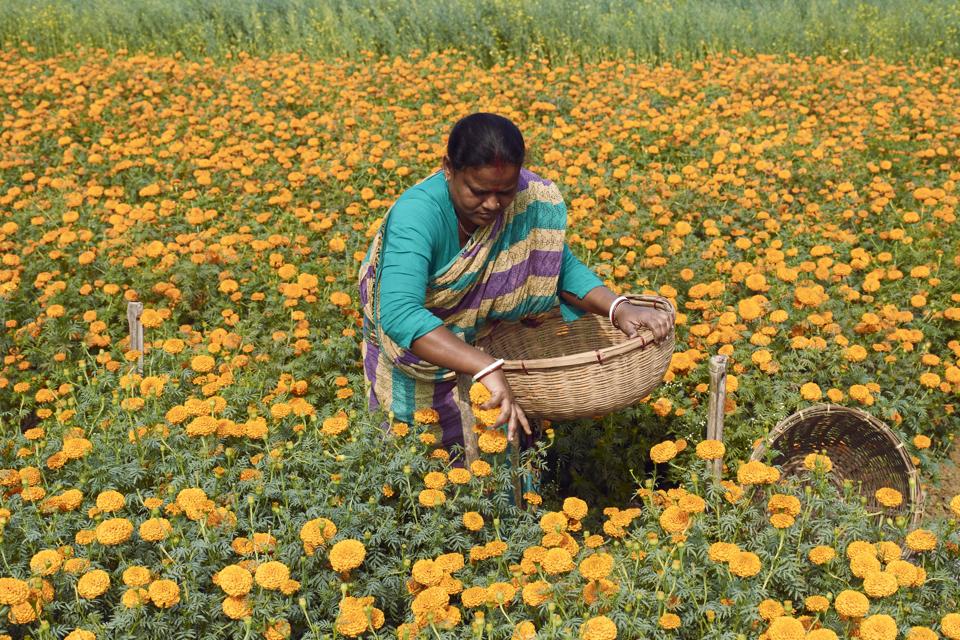
Madhya Pradesh: In recent years, farmers in Bhopal district have increasingly embraced floriculture as a supplementary venture alongside traditional crop farming. The vibrant flowers now cultivated across the region are in high demand in local markets, reflecting a shift toward diversified agriculture. Data from the Horticulture Department indicates that flower production in Bhopal has risen by an impressive 39% over the last three years, underscoring the growing importance of floriculture.
The rapid expansion of floriculture in Bhopal can be attributed to two major factors: a shift toward modern farming practices and supportive government policies.
First, more farmers are venturing beyond traditional farming methods, exploring advanced agricultural practices like floriculture. This shift highlights a broader trend in agricultural modernization, with floriculture offering higher profit margins and diversified income streams. As interest in this lucrative field grows, more farmers are integrating floriculture into their operations to supplement their income.
Second, government support has played a significant role in this transformation. Various horticulture schemes provide farmers with favorable loans and subsidies, ranging from 30% to 40%, making it easier for them to invest in floriculture. These financial incentives have spurred many farmers to expand their flower-growing operations, fostering rapid sectoral growth.
Rajkumar Sagar, Assistant Director of Horticulture, reported a significant increase in the area under flower cultivation and overall production. He also noted the growth in polyhouses, which protect crops from erratic weather, as a key driver of this industry’s expansion.
Despite Bhopal’s unpredictable weather, floriculture has shown remarkable resilience. Rose farmer Sunil Thakur said that although the region received 65% more rainfall than usual during the monsoon, flower crops remained largely unaffected. The use of polyhouses—a farming method that protects crops from adverse weather—helped mitigate the impact of excessive rain, allowing for stable production. While the marigold crop experienced some rain damage, breaks in the rainfall allowed the plants to recover, minimizing losses.
This resilience highlights the advantages of protective farming techniques like polyhouses, which enable farmers to manage environmental risks and maintain yields, even during challenging weather. For many farmers, floriculture has proven to be a reliable income source, providing stability and growth in uncertain climates.
The surge in local flower production has lessened Bhopal’s reliance on flowers from other cities. Shivam Mali, a flower wholesaler, shared that during major festivals such as Ganesh Utsav, Navratri, Dussehra, and Diwali, Bhopal markets can now depend on flowers grown within the district. This self-sufficiency has not only benefited the local economy by reducing transportation costs but also ensures that customers receive fresher products. Even during election seasons, which typically drive up demand, wholesalers in Bhopal no longer need to import flowers from other parts of Madhya Pradesh or neighboring Maharashtra.
As floriculture continues to expand in Bhopal district, it holds great promise for local farmers. Increased adoption of modern farming techniques, continued government support, and resilience to adverse weather are all contributing to the sector’s sustained growth. With local markets increasingly able to meet demand and a consistent need for flowers during festivals and events, floriculture offers a sustainable and profitable option for farmers seeking diversified income sources.





